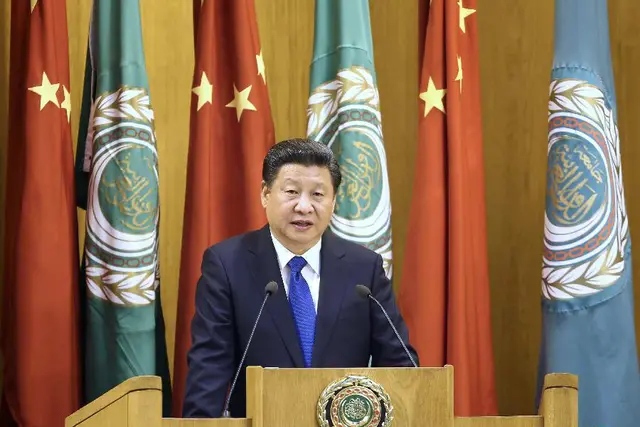US-Russian relations haven't improved remarkably after US President Donald Trump and his Russian counterpart Vladimir Putin met during the G20 Hamburg Summit held earlier in July.
This month has witnessed a diplomatic row between the two countries, expulsions of diplomats on both sides and a sanctions bill against Russia. The confrontation between Washington and Moscow has risen to a new level.
The US House of Representatives voted overwhelmingly on July 25 to slap new sanctions on Russia. These are America's toughest sanctions against Russia since the Ukraine crisis in 2014, indicating US-Russian ties have plunged again.
The diplomatic row after the Trump-Putin meeting shows that political détente is not easy to achieve.
This can be seen in the psychological transition among political elites in the two countries from expecting an improvement of US-Russian relations to accepting a long-term confrontation.
Both Trump and Putin failed to foresee the rising confrontation, but they should not be blamed for the strained bilateral relations. The domestic and external situations of the two countries leave limited room for the two presidents to improve ties.
First, domestic political conflicts have reduced the possibility of the warming of ties. As accusations about the alleged Russian meddling in Trump's presidential campaign are swirling, normal interactions between the Trump and Putin administrations are criticized.
The Trump administration is discreet in its interactions with Russia, and even normal exchanges between the two states have to go through "non-normal" channels, in order not to follow the path of former US national security adviser Michael Flynn, who was investigated by the FBI as part of the probe into alleged collusion between Trump's presidential campaign and the Russian government.
For instance, former US secretary of state Henry Kissinger played a key role in preparing for the Trump-Putin meeting. As Kissinger has already retired from his position, his involvement in the bilateral meeting between Trump and Putin indicates the US-Russian relationship is seemingly deviating from the right track.
The "Russiagate" frenzy in the US has given rise to the perception among Russians that the US shows strong anti-Russia sentiments, which further fuels the nationalist sentiments in Russia. Russian political elites who are bracing for a presidential election are reluctant to act against demands of nationalists in their country.
Second, the US and Russia haven't found solutions to security problems.
Trump and Putin reached an agreement on curbing violence in southwest Syria during their sitdown at the G20 meeting in Germany, in a bid to lay a solid foundation for further exchanges.
However, the NATO-Ukraine Commission immediately following the G20 destroyed the amity between Washington and Moscow, which indicates that the two sides have to face the Ukraine issue. In fact, the US and Russia are very unlikely to make a compromise on the Ukraine issue. Russia cannot cede the Crimea region, and the US treats Ukraine as its important strategic ally and won't give up.
The approval by the US Congress of new sanctions against Russia will exert crippling effects on US-Russian relations and Russia's ties with European countries. Besides, the bill sends Russians a signal that the anti-Russia mentality among American elites remains strong and the US hasn't psychologically geared up for improving its ties with Russia.
It's reported that US Secretary of State Rex Tillerson is frustrated and considering resigning from his post because of his engagement in Russia's alleged meddling in the US presidential campaign, posing a challenge to the normal exchanges between the two countries.
As Tillerson is an expert on Russia, he has played a significant role in communications between Washington and Moscow, especially winning trust from Russian elites. Once he is replaced, the new secretary will take time to get familiarized with the work. Against this backdrop, mutual communications between the US and Russia have to start all over again, and the warming of bilateral ties will not come within the foreseeable future.
(CGTN)
 简体中文
简体中文

